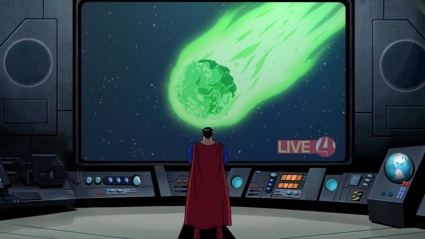There was a vicious attack on the English language recently, while I was, regrettably, asleep at my post. Evil ninjas raided stealthily (they’re very good at this stealthy thing, in case you hadn’t noticed; of course you hadn’t noticed) in the dead of night and snatched “you’re welcome” from the lexicon, replacing it for all eternity with the much hipper, but infinitely more annoying “no problem.” I have a major problem with “no problem.” When exactly did “you’re welcome” become unhip and thus uncoupled from its heretofore perfect partner throughout the ages, “thank you”?
I don’t get it; the phrases don’t even work together. Why not change them both, or not at all? You know what would be better, assuming that such a change is even preferable or necessary? How about, “Yo, dude.” “No problem.” Or even the more hip, “Dude!” “No prob!” Such is a change I could get behind; it makes some sense. But “thank you/no problem” is clearly a half-assed solution if, indeed, it is “assed” at all!
Let’s assume (I know, I’m making an “ass of u and me,” but after all, it’s my blog.) that I’m a patron at the local Grand Lux Cafe (where the thank you/no problem abomination apparently has run amok), and you are the server. (Here’s another exchange that’s all too common in semi-fine dining establishments these days… Waitress: “Hello. I’m Tiffany. I’ll be your server this evening!” Me: “Hello, Tiffany. I’m Alan. I’ll be your customer this evening!” This sort of jolly repartee really endears one to one’s server; one should try it! But I digress…) Anyway, Tiffany brings me a glass of warm, cloudy water, because I have graciously, but foolishly, perhaps, declined her kind offer of the $16.00 bottle of Pellegrino water. I say, “Thank you,” though I don’t really mean it. She replies, “No problem.”
Here’s the problem… If the simple and generally required act of the server bringing the customer a glass of warm, cloudy water could even remotely be construed a potential problem-causing scenario, Tiffany has no earthly right earning her livelihood as a server! She has accepted this position under false pretenses! I’m sorry, but it is a server’s responsibility to serve, and Tiffany is generously compensated for her efforts (in large measure because we customers are obliged to compensate Tiffany generously for her efforts because Tiffany’s employer is not obligated to compensate her generously). So Tiffany need not say “no problem” after having served something to a customer. Problem should not even be a topic of conversation; there is no problem, thus the phrase need not be uttered at all.
The phrase that begs to be uttered, however, in response to “Thank you, Server Tiffany, for this warm, cloudy glass of water that is clearly not Pellegrino,” is: “You’re welcome, Customer Alan. I am happy to be of service.”
 You may ask if there are any situations in which “no problem” would be an acceptable response to “thank you.” I can think of only a couple… Say, for example, that one is Superman, and Superman has just spied, with his super-vision, a potential global-extinction-causing event in the form of a meteor, roughly the size of Rhode Island, which is hurtling, considerably faster than a speeding bullet, toward the planet. (Earth, not Krypton. “No problem” may very well be the accepted, even preferred, response to “thank you” in Kryptonese.) Superman, being the kind of guy that he is, naturally speeds off to confront the meteor and deflects it away from Earth by utilizing his super-breath, thereby saving billions of living creatures and earning the everlasting love of Lois Lane and all those other women in the Superman comics whose initials are “L.L.”
You may ask if there are any situations in which “no problem” would be an acceptable response to “thank you.” I can think of only a couple… Say, for example, that one is Superman, and Superman has just spied, with his super-vision, a potential global-extinction-causing event in the form of a meteor, roughly the size of Rhode Island, which is hurtling, considerably faster than a speeding bullet, toward the planet. (Earth, not Krypton. “No problem” may very well be the accepted, even preferred, response to “thank you” in Kryptonese.) Superman, being the kind of guy that he is, naturally speeds off to confront the meteor and deflects it away from Earth by utilizing his super-breath, thereby saving billions of living creatures and earning the everlasting love of Lois Lane and all those other women in the Superman comics whose initials are “L.L.”
Now, if Lois Lane were to say, “Thank you, Superman” at the conclusion of his heroic deed, Superman could rightfully say, “No Problem, Lois.” The reason that his response is accurate is twofold: 1. The Rhode Island-sized meteor hurtling toward Earth represented a genuine problem. In other words, a problem existed; and, 2. Averting global disaster was literally no problem for Superman, because he, of course, possesses powers and abilities far beyond those of mortal men. (Knowing Superman as I do, however, my best guess is that he would have replied, “You’re welcome, Lois,” if such a situation actually arose; this owing to his powers of super-politeness and super-correctness. But that is clearly beside the point here.)
What’s that you say? The scenario outlined above is too farfetched to even remotely be taken seriously? You’d like another? No problem… Let’s say, for argument’s sake, that you are vacationing in Japan. You stop for lunch at the local Grand Lux Sushi Shop. At the precise moment that you begin to devour the hunk of Unagi Nigiri that you have purposely saved for last, there is an otherworldly bellow emanating from the street adjacent to this semi-fine Japanese dining establishment. You rush outside along with several other patrons at the exact moment that Godzilla, who has also decided to stop for lunch at Grand Lux Sushi, is scarfing down People Rolls by the handful. Godzilla reaches for you, and you reflexively grab onto the arm of the Asian gentleman with the shock of bright red-orange hair who is standing next to you. Godzilla, momentarily startled, now reaches instead for the family-of-four vacationing from the Netherlands. He dispatches them, lets out a fire-inducing belch, and moves on quickly in pursuit of the delivery truck, several blocks away, filed with tasty maple kinako on grilled mochi, with which he intends to conclude his luncheon.
 When it is clear that the danger has passed, you turn to the red-orange-haired gentleman upon whose arm you are still hanging and say, “Thank you!” He correctly responds with the Japanese equivalent of “No problem.” The response, “no problem” is correct in this instance because the flame-haired gentleman did virtually nothing to save you, with the possible exception of allowing you to latch onto his arm. Godzilla thought better of lunching on you and your sunset-haired companion owing to his well-known aversion to ginger, which, when ingested tends to cause his eyes and throat to swell shut.
When it is clear that the danger has passed, you turn to the red-orange-haired gentleman upon whose arm you are still hanging and say, “Thank you!” He correctly responds with the Japanese equivalent of “No problem.” The response, “no problem” is correct in this instance because the flame-haired gentleman did virtually nothing to save you, with the possible exception of allowing you to latch onto his arm. Godzilla thought better of lunching on you and your sunset-haired companion owing to his well-known aversion to ginger, which, when ingested tends to cause his eyes and throat to swell shut.
By your disapproving scowl, I understand that nothing I say today will bring you over to my side in the you’re welcome/no problem debate. So I will at least propose this temporary, partial solution to the near-conundrum. Can we at least agree to change the word “tip,” which every schoolchild knows stands for the phrase “to insure promptness,” to something more appropriate in today’s linguistic climate. If we simply change tip to tinp, Tiffany can merely nod her pretty head and smile sweetly after having delivered the warm, cloudy water and been the recipient of a customer’s “thank you.” For, you see, Tiffany is now secure in the notion that her tinp, which translates as, “to insure no problem,” has taken care, once and possibly for all, of the no-problem problem.

Thanks for addressing that lapse, Alan. I hope that you will deal with another when you have the time: qualifying qualifiers. I wrote the following to David Pogue of the New York Times, etc.:
“Hi David,
I enjoy your articles—well written and comprehensible. I, for one, though, am jangled by colloquialisms like your; “Admit it—that’s kind of brilliant.” in the Adobe Voice article which I read on Facebook.
Kind of brilliant? I wouldn’t use a qualifier for brilliant; it is a qualifier. Please don’t write down to your readers. Some of us are language nerds and resent it.”
David’s response–if only I could find it–was rather snarky, saying, essentially, that colloquial is who he is. Trend setters, like David, only reinforce the stupid colloquialisms which creep into our language.
(And how about the restaurant server who addresses me and my female companion as: “Hi, Guys!” Arrrrrrggggggg!)
Cheers, Ted Scott
LikeLike
Thanks, Ted. I was beginning to think that I was one of the last surviving language nerds left on the planet (Earth, not Krypton).
Best,
Alan
LikeLike